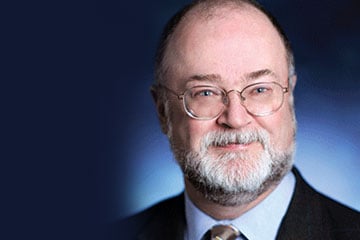The Law Society of Upper Canada is considering banning all referral fees between lawyers.
The recommendation was floated as an option in a long anticipated
report on how the law society should further regulate advertising and referral fees in the legal profession.
The working group examining the issue has found that clients of some personal injury firms do not always know about the existence of referral fees, or that they are being referred to another lawyer, even though the law society’s current rules require lawyers to disclose such information.
Convocation will decide on Thursday whether to adopt either an outright ban of referral fees or a cap limiting how much lawyers could pay each other for referrals.
“The working group thought that there were two plausible choices that Convocation should make,” says Bencher Malcolm Mercer, who is chairman of the Advertising and Fee Arrangements Issues Working Group Report.
“And when there was not consensus within the working group as to which of the two answers was the right one, the better course was to put it to convocation.”
The working group found that some referral fees have crept up to more than 20 per cent. Some who gave feedback to the working group have advocated for a 10-per-cent cap on all referral fees, while others have asked for a 30-per-cent level.
If Convocation decides to approve the cap, the working group will come up with an appropriate amount, as well as additional measures to ensure greater transparency.
Mercer says these measures could include a requirement of a formal written agreement between the referrer and the client. Another transparency measure could be a requirement that lawyers make it clear in their advertisements when some of the work will be referred out to other lawyers or firms, he says.
Mercer says the working group has not made a decision on what the cap would be, but he expects it would be “in the lower range.”
The law society is also looking to add to its rules on advertising, which currently include requirements that lawyers advertise in a way that is not misleading, is accurate, and is in the best interest of the public.
The new rules would require licensees to identify whether they are a paralegal or a lawyer in their advertisements. The law society would also look to amend the Rules of Professional Conduct to “guide licensees as to the appropriate use of awards and honours, and to protect the public from misleading use of awards and honours when necessary.”
Licensees would also be banned from advertising work that they are not permitted to do, or do not intend to do.
The working group flagged the issue in its interim report that said some firms have advertised legal services that were referred out without any intention of doing that work.
The proposed changes also include a ban on second opinion advertising, which entices a potential client that already has a lawyer to retain the advertiser instead.
The rules would also ban lawyers from referring to third party awards and rankings in their ads that are “not bona fide or are likely to be misleading, confusing or deceptive.”
The working group’s interim report from the summer also tackled issues concerning advertising in the real estate bar as well as contingency fees, but the committee has not finished its work on those issues.

